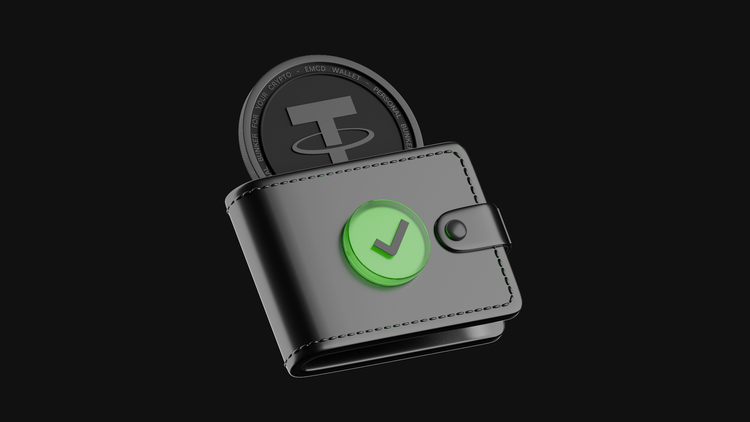Trading Crypto: How to Make Money With P2P

P2P – peer-to-peer – is a way to buy and sell cryptocurrency directly, without intermediaries. Instead of acting as a middleman, exchanges and trading platforms serve as security guarantors, ensuring safe and reliable transactions.
If you’re wondering how to make money with crypto P2P, the first step you need to take is choosing the right platform. Equally important is understanding the ins and outs of this trading type – learning about potential pitfalls, common mistakes, and fraud schemes to stay ahead and trade safely.
What’s P2P Trading?
P2P trading is a decentralized way of buying and selling assets without relying on a centralized intermediary like an exchange or exchanger.
This method allows buyers and sellers to negotiate transaction terms directly through an online platform that facilitates the transfer of funds and assets between users. Importantly, the platform itself doesn’t hold any assets on behalf of traders, ensuring full control over transactions.

One of the biggest P2P trading advantages is the wide range of payment methods and flexible pricing options. You can fund your wallets using fiat currency, and some platforms even allow deposits via bank cards.
Earning with P2P trading involves buying assets at a lower price and selling them at a higher one. Additionally, you can profit by providing liquidity to the platform by listing your assets at competitive prices. So, you facilitate trades and earn fees in return.
Keep in mind that P2P trading carries high risks since it operates without regulatory oversight. This means there are no guarantees regarding the legitimacy of counterparties involved in transactions. To trade safely, P2P traders need to perform a thorough analysis before buying or selling assets to other users.
The platform provides security for transactions, but the protection level depends on the service type used. Centralized platforms offer higher security since they can intervene in disputes by holding assets in escrow. In contrast, decentralized services don’t have access to users' funds, meaning they cannot freeze a counterparty's assets or transfer them in case of fraud.
P2P Trading Earning Strategies
Making money with P2P exchange can be quick and straightforward if you know the main earning methods:
- Arbitrage Between Exchanges
Buy cryptocurrency on one exchange at a lower price and sell it on another for a higher price. This method can also be used within the same platform if price differences exist between P2P offers. - Spot-to-P2P Arbitrage
Buy crypto on the spot market and resell it at a higher price on a P2P platform, taking advantage of price discrepancies between the two markets.
P2P platforms typically track cryptocurrency prices on spot exchanges. When creating an offer, a seller can set a markup, for example, +5% above the spot price, which becomes their arbitrage profit after deducting exchange fees. Some platforms charge no fees at all, further increasing potential earnings.
If you’re wondering how to make money with P2P trading successfully, you need to create and verify accounts on all relevant exchanges. Additionally, pre-funding accounts across platforms can save time and streamline transactions by avoiding delays in transferring funds between exchanges.
How P2P Arbitrage Works
The P2P arbitrage trading main goal is to profit from price discrepancies within a single platform or across multiple exchanges. In other words, traders must monitor cryptocurrency prices, find the lowest-priced offers, complete transactions, and then look for offers with the highest price. The key is acting quickly – if the trader takes too long, they risk missing out on potential profits or losing part of it.
P2P trading involves transactions between two traders, meaning the currency directly moves from one person’s account to another’s. The term ‘peer-to-peer’ itself refers to ‘equal operations,’ highlighting the direct nature of these transactions without intermediaries.
Any trader, regardless of experience, can engage in P2P transactions. It's worth noting that P2P platforms simplify the trading process and increase the cryptocurrency transactions’ security level. Some platforms even offer unique features that help automate the process, saving you time and minimizing unnecessary delays.
Price fluctuations can often happen quickly, making cryptocurrency arbitrage a highly profitable activity. If you’re quick enough to spot price differences across platforms, that’s where you can secure consistent profits. Acting swiftly allows you to capitalize on these opportunities and earn a steady income.

It’s important to mention the use of specialized bots and scanners. These tools are available on certain platforms and with exchange brokers, offering convenient functionality. All you need to do is choose a reliable bot at a reasonable price. It’s also crucial to consider factors like platform integration, functionality features, customer support, and software updates. Additionally, the speed at which information is processed is key since it directly affects your potential profit.
P2P Arbitrage Types
There are several P2P arbitrage types, each with its own specific features. You can choose one of these approaches or even combine multiple strategies to maximize your opportunities.
- Intra-exchange arbitrage
This involves executing trades within a single platform.
Advantages: Saves time and reduces fees.
Disadvantages: You may miss out on better prices available on other exchanges. - Cross-exchange arbitrage
Traders use multiple P2P platforms, looking for the biggest price discrepancies across different cryptocurrency pairs.
Advantages: Offers the potential to find the most favorable exchange rates.
Disadvantages: Requires registration on several platforms and familiarizing oneself with their features. - Long-term arbitrage
This is the most standard form of arbitrage, where you hold onto an asset for a longer period.
Advantages: The potential for significant profit.
Disadvantages: No guarantees that the asset's price will increase during the holding period. - Currency exchange rate arbitrage
This involves speculating on the difference in exchange rates between different currencies.
Advantages: The potential for substantial profits.
Disadvantages: The effectiveness of currency pairs can quickly diminish.
Several factors influence trading profitability:
- Transaction speed
- Exchange stability
- P2P platform fees
- Withdrawal speed
How to Get Started with P2P Arbitrage and Start Earning
P2P arbitrage is gaining traction as a popular option, but before diving in, it’s essential to understand its nature. To succeed, you need solid knowledge and skills in P2P trading, along with hands-on experience using various trading tools. This helps avoid unprofitable deals and potential scams. Additionally, learning from seasoned traders by following discussions on financial market forums can provide valuable insights and strategies for success.
Let’s look through a few proven strategies:
- Traders can manually post buy or sell offers on an exchange for a specific asset. To reach a wider audience, it's smart to set a competitive price range across multiple platforms. This not only boosts profitability but also improves the trader’s reputation.
- Instead of creating listings, traders can browse existing buy and sell offers. The key is to identify the most favorable platform where assets are being traded at the best possible prices. This method requires market awareness and quick decision-making to capitalize on price differences.
These methods can be applied not only within a single exchange but also across multiple platforms simultaneously. The advantage of the first approach is lower transaction fees. However, it requires some trading experience. Spotting profitable options without them may be challenging.
The ideal starting amount for beginners depends on several factors, but a good benchmark is 200-500$. While this won’t generate massive profits right away, it provides a solid foundation to gain experience and understand the P2P trading mechanics.
Don’t forget about paying taxes on time. If your bank accounts see significant monthly transactions, the Federal Tax Service may take notice. To stay compliant, it’s crucial to file an annual income tax declaration within the legally prescribed deadlines. Proper tax reporting ensures smooth operations and helps avoid potential issues with regulators.
Trading experts recommend newcomers join a community of experienced traders, such as a chat group where valuable insights are shared. Watching educational videos and reading articles on P2P trading can also be beneficial.
Beware of people who sell ‘secret strategies’ or exclusive club memberships that often provide little to no real value. Profitable trading strategies are usually found in open sources, while truly advanced and effective methods are rarely disclosed publicly.
P2P trading involves transactions between real people, which means there’s always a risk of encountering fraudsters. One of the most common scams is fake notifications about a payment. A trader receives a message claiming that funds have been credited and, trusting it, releases the asset, only to later realize that no money actually arrived.
To avoid such scams, always verify incoming payments directly through online banking before completing a transaction.
How to Choose the Right P2P Platform for Crypto Trading
If you’re curious about how to earn money with P2P, you should look through several key factors for choosing the best P2P platform outlined in this guide.
Trading Fees
Fees can vary significantly across platforms, and some even offer zero fees. To maximize profits, it's essential to compare trading fees across different exchanges. Additionally, always check for hidden charges like deposits or withdrawal fees to avoid unexpected costs.
Supported Cryptocurrencies
The range of available cryptocurrencies is crucial when choosing a P2P platform. Some exchanges support only a limited asset number. However, rather than focusing on the total number of listed coins, it's more important to check whether the platform offers the specific trading pairs you need.
Trading Volume

Trading volume reflects the platform’s popularity and liquidity. High trading volume often means better prices due to greater market activity. However, extremely high volume can lead to increased competition and higher fees. It’s important to strike a balance between liquidity and trading fees to ensure optimal profitability.
Security
Security is the most crucial factor when choosing a platform. The more robust the platform's security measures, the better. Effective tools like 2FA and encryption are key for safeguarding your account. Additionally, the platform should provide escrow services to protect transactions, ensuring you don’t fall victim to scams.
For cryptocurrency trading, you can choose between decentralized P2P platforms and centralized exchanges. Both have their advantages and drawbacks, so the choice ultimately depends on your personal preferences and security needs.
P2P Arbitrage Potential Profits
To estimate your potential profits, start by checking the spread – the difference between buying and selling prices – on your chosen platform. It’s also helpful to compare the spreads between two different exchanges to identify the best opportunities for profit. The larger the spread, the higher your potential profits, but remember that higher spreads may come with increased risks.
The crypto arbitrage profitability comes from executing short-term trades. For example, on one exchange, Bitcoin might be priced at $96 200, while on another, it's $96 100. If you buy 0.5 BTC and resell it at a higher price, you could make a $50 profit before considering any fees.
The main P2P trader goal is to quickly buy at the lowest price and sell at the highest price rather than trying to predict price movements. So, traders should monitor price charts and make quick decisions. This is the P2P arbitrage essence.
The average profit margin per trade is typically less than 1%. While this may seem small at first glance, keep in mind that banks offer interest rates of no more than 10% annually on savings accounts. In P2P arbitrage, you can achieve that same return level in just a few hours, making it a potentially more profitable option in the short term.
By analyzing trading pairs and focusing on higher-value cryptocurrencies, you can get significant price differences. For example, with Bitcoin, a $100+ price gap between exchanges is quite common. This creates more opportunities for profitable trades in P2P arbitrage.
When selecting offers, it’s essential to choose those with convenient payment options. However, don’t forget to factor in the payment system and bank fees when making transfers.
Keep in mind that market offers can be unstable. Both sellers and buyers have their limits, and many competing arbitrage traders act quickly to narrow the spreads. This competition can make it challenging to earn profits in P2P trading consistently. However, experienced traders who understand the nature of the market can still generate significant returns despite the volatility.
Common Mistakes and Risks in P2P Trading
P2P trading can be a great way to profit, but many users fall into common traps. Here are some key mistakes you should avoid:
- Chasing unrealistic deals
If an offer seems too good to be true, it probably is. Many overly attractive deals turn out to be scams, leading to losses instead of profits. - Rushing into decisions
Before buying or selling crypto, always check the counterparty’s reviews and completed trades. A little research can go a long way in protecting you from scammers. - Lack of attention to detail
Never release your crypto until the payment is fully confirmed. Always verify your wallet balance yourself since dishonest traders may send manipulated screenshots as payment ‘proof’. - Switching to another platform
Scammers often try to lure you away from the official platform, asking you to continue the transaction on a third-party service. You should never switch platforms since official services record all messages, providing security in case of disputes.
Beyond these basic rules, the topic of listings on the platform is also worth mentioning.
It’s best to disable them if you don’t plan to make any transactions in the near future. Otherwise, their reputation might take a hit. On top of that, counterparties can file an appeal if they don’t receive funds within the agreed timeframe. If you know exactly when you’ll be active on the platform again, you should set a specific time for your listings to go offline. This restriction will only be temporary. Once the time limit expires, access will be restored, and you can dive back into making deals based on existing offers.

Today, buying cryptocurrency is a relatively safe operation. The same goes for engaging in P2P arbitrage transactions. However, it’s important not to overlook potential risks. Let’s dive into a few practical recommendations:
- When making transfers, it’s crucial to proceed with caution. Always consider fees and ensure the deal is profitable on that specific platform before making a transfer.
- Never overlook the cryptocurrency volatility. This market’s unpredictable nature can lead to significant financial losses if a forecast turns out to be wrong or a transaction is executed at the wrong moment. Timing and accuracy are everything in this high-stakes game.
- Be prepared for platform downtime since technical issues happen. Losing access, even temporarily, can impact your trades. Always have a backup plan.
- The faster you can crunch the numbers accurately, the better. Keep in mind that even a single variable can make or break your final profit, so improving your math and analytical skills will give you an edge.
To succeed in P2P arbitrage, you need to make decisions fast. This means being able to track price fluctuations in real-time and putting that information to work immediately. The field is now crowded with competitors hunting for the best offers. On top of that, specialized bots are in play, and their capabilities are constantly evolving. Staying ahead requires constantly improving your strategy and tools.
Common Scams in P2P Trading
P2P arbitrage can be profitable, but scammers always look for ways to exploit traders. Knowing their tactics can help you stay safe. Here are some of the most common fraud schemes:
- Triangle Scam. The scammer opens two deals – one with an arbitrage trader and another with a victim – buyer. The buyer unknowingly sends money to the arbitrage trader while the scammer walks away with the crypto.
- Transaction Reversal. If you buy crypto through a middleman instead of a platform, be cautious. The scammer first sends coins, making it appear like a legitimate trade. But after receiving your payment, they reverse the transaction, leaving you empty-handed.
- Fishing for Victims. A scammer offers an incredibly good exchange rate to lure traders in. Once a deal is opened, they manipulate the price using software, causing a sudden shift in rates resulting in significant losses for the buyer.
How to Safely Earn on P2P with EMCD
Cryptocurrency is a powerful financial tool that drives two key goals:
- Decentralization and financial freedom
- Independence from banks
P2P trading plays a significant role in achieving these goals, and platforms like EMCD provide a secure environment for you to trade.
In the P2P market, merchants set their own exchange rates, buying and selling crypto for fiat.
Many turned this strategy into a profitable business by leveraging market fluctuations. Even stablecoins, despite their name, experience minor price shifts, creating options for arbitrage.
No matter your experience level, your offer won’t get lost among thousands of others on the EMCD platform. Since the service hasn’t yet reached mainstream popularity, it’s a golden option for your profitable P2P trading.
EMCD respects your privacy. Unlike other platforms, it doesn’t require passport photos or other invasive identity checks.
Opening a deal with EMCD is easy and fast. You need to create an account on the Official Site and choose the best offer that suits your trading needs. Just follow the platform's simple instructions to complete the transaction.
There’s also no need for KYC verification. So you can keep your privacy intact and speed up the process. EMCD doesn’t store any personal data, ensuring your information stays private.
Each EMCD trade takes about 5 minutes, with a maximum waiting time of up to 2 hours.
Funds are frozen in the system until the deal is fully completed, ensuring both parties follow through with their agreement.
If any issues arise, you can open a dispute, and the support team will quickly investigate and help resolve the situation.
If you're actively involved in cryptocurrency, P2P trading is essential. Not only does it allow you to exchange crypto at favorable rates, but it also offers a way to earn profits through arbitrage.
F.A.Q.
What are the risks of arbitrage on P2P platforms?
Today, earning on P2P is considered a relatively safe way to increase income. However, beginner merchants may encounter a number of issues: high cryptocurrency volatility, technical failures on the platform, excessive fees, as well as risks of fraud and transaction cancellations.
What initial capital is needed for P2P arbitrage?
The initial capital for P2P arbitrage depends on your strategy and transaction volumes, but it's recommended to start with an amount between $100 and $1000. Keep in mind that as your capital grows, both your potential profits and risks will increase.
Is trading experience required to earn from P2P arbitrage?
While trading experience is certainly helpful, you can start P2P arbitrage even without it. The key is carefully studying the platforms, risks, and strategies before diving in.
Do I need to pay taxes on profits from P2P arbitrage?
Yes, in most countries, taxes apply to P2P arbitrage profits. It's important to check local regulations and ensure you report your earnings accurately to avoid legal issues.












